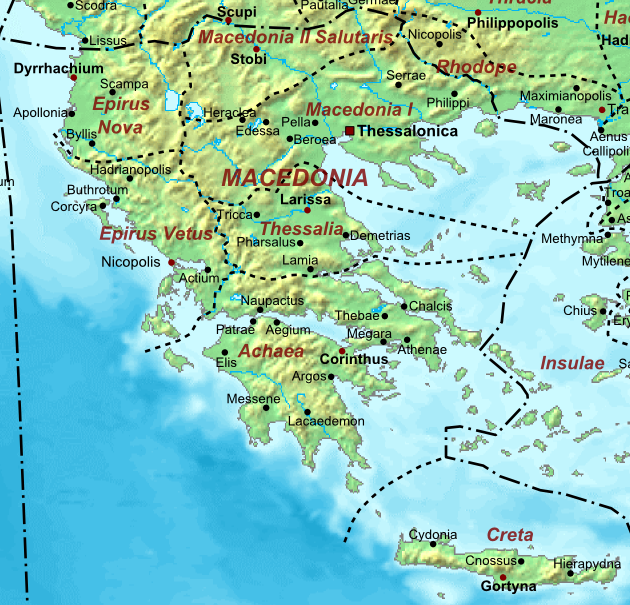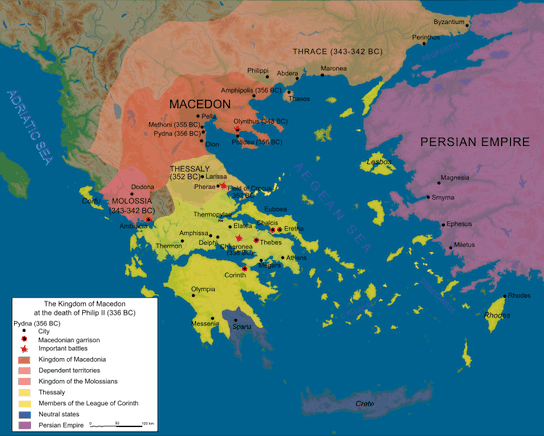Unveiling the Ancient World: Exploring the Geography and History of Macedonia in Ancient Greece
Related Articles: Unveiling the Ancient World: Exploring the Geography and History of Macedonia in Ancient Greece
Introduction
With enthusiasm, let’s navigate through the intriguing topic related to Unveiling the Ancient World: Exploring the Geography and History of Macedonia in Ancient Greece. Let’s weave interesting information and offer fresh perspectives to the readers.
Table of Content
Unveiling the Ancient World: Exploring the Geography and History of Macedonia in Ancient Greece
:max_bytes(150000):strip_icc()/ExpansionOfMacedon-312de9223fd84df1a1ef47bf2587f068.jpg)
Macedonia, a region that resonates with echoes of ancient history and legendary figures, holds a significant place in the tapestry of ancient Greece. Its strategic location, diverse landscape, and vibrant culture have captivated scholars and historians for centuries. To understand the intricacies of this region, it is crucial to delve into its geographical features, historical significance, and enduring legacy.
A Geographical Tapestry: Unveiling the Terrain of Ancient Macedonia
Ancient Macedonia, encompassing a vast area in the northern part of the Balkan Peninsula, was a land of contrasts. Its geography played a pivotal role in shaping its history, influencing its people, and shaping its destiny.
Mountains and Valleys: A Landscape of Diversity
The region was characterized by a diverse landscape, with towering mountain ranges interspersed with fertile valleys. To the west, the Pindus Mountains served as a natural barrier, separating Macedonia from Epirus. To the north, the Rhodope Mountains provided a formidable defense against invaders from the north. In the east, the Thracian Mountains marked the boundary with Thrace. Between these mountain ranges lay fertile valleys, such as the Pelagonian Valley and the Axios Valley, which provided rich agricultural land and supported a thriving population.
Rivers and Waterways: The Lifeline of Macedonia
Ancient Macedonia was crisscrossed by a network of rivers, serving as vital arteries for trade and transportation. The Axios River, flowing from the north to the Aegean Sea, provided a vital link to the coast. The Strymon River, flowing through the eastern part of Macedonia, also played a significant role in trade and communication. These waterways facilitated the movement of goods, people, and ideas, connecting Macedonia to the wider world.
Strategic Location: A Crossroads of Civilizations
Macedonia’s strategic location, situated at the crossroads of major trade routes, made it a vital hub for cultural exchange and economic activity. The region lay on the ancient Via Egnatia, a Roman road connecting the Adriatic Sea to Constantinople, facilitating the movement of goods and armies across the Balkan Peninsula. This strategic location also exposed Macedonia to influences from neighboring civilizations, contributing to its cultural diversity and dynamism.
Historical Tapestry: Unraveling the Rise and Fall of Ancient Macedonia
The history of Macedonia is a fascinating narrative of kings, conquests, and cultural achievements, shaping the course of ancient Greece and beyond.
From the Shadows to the Spotlight: The Early Macedonians
In the early centuries, Macedonia remained largely on the periphery of the Greek world. Its inhabitants, the Macedonians, were considered a distinct group, with their own language, customs, and traditions. They were known for their prowess as warriors, their strong sense of community, and their reverence for their kings.
The Rise of Philip II: A Legacy of Conquest and Expansion
The rise of Philip II, the father of Alexander the Great, marked a turning point in Macedonian history. A brilliant strategist and ruthless leader, Philip II unified the Macedonian tribes, expanded his kingdom, and established a formidable army. He conquered much of Greece, laying the groundwork for the Macedonian empire that would dominate the ancient world.
Alexander the Great: A Legacy of Empire and Cultural Exchange
Alexander the Great, Philip II’s son, inherited his father’s ambition and military genius. He embarked on a series of conquests, extending the Macedonian empire from Greece to Egypt, Persia, and India. His military victories, coupled with his cultural policies, marked a period of unprecedented expansion and cultural exchange, spreading Greek influence throughout the ancient world.
The Legacy of the Macedonians: A Lasting Influence on Ancient Greece
The Macedonians left an enduring legacy on ancient Greece. Their military prowess, their administrative skills, and their cultural innovations shaped the course of Greek history. The Macedonian empire, though short-lived, played a vital role in the Hellenization of the ancient world, spreading Greek language, culture, and ideas to far-flung corners of the globe.
The End of an Era: The Decline and Fall of the Macedonian Empire
Following Alexander’s death, the Macedonian empire fragmented, succumbing to internal strife and external threats. The Romans eventually conquered Macedonia, incorporating it into their vast empire. While the Macedonian empire ceased to exist, its influence continued to reverberate throughout the ancient world.
Exploring the Legacy of Ancient Macedonia: A Journey through Time
The legacy of ancient Macedonia is evident in its archaeological sites, ancient texts, and enduring cultural influences.
Archaeological Treasures: Uncovering the Past
Ancient Macedonia is home to a wealth of archaeological treasures, offering insights into its rich history and culture. The ancient city of Pella, the capital of the Macedonian kingdom, is a testament to the grandeur of the Macedonian empire. Excavations have uncovered magnificent palaces, temples, and public buildings, providing glimpses into the life and culture of the Macedonians.
Ancient Texts: A Window into the Past
Ancient texts, including the writings of historians like Herodotus and Plutarch, provide valuable insights into the history and culture of ancient Macedonia. These texts offer accounts of Macedonian kings, battles, and customs, shedding light on the rise and fall of the Macedonian empire.
Cultural Influences: A Lasting Legacy
The cultural influences of ancient Macedonia continue to resonate in the modern world. Macedonian art, architecture, and literature have left their mark on the course of Western civilization. The legacy of Alexander the Great, in particular, has inspired generations of artists, writers, and thinkers, perpetuating the enduring fascination with the Macedonian empire.
FAQs: Exploring the Mysteries of Ancient Macedonia
Q: What was the relationship between ancient Macedonia and ancient Greece?
A: Ancient Macedonia was a distinct region with its own language, customs, and traditions, but it was also part of the wider Greek world. The Macedonians considered themselves Greeks, and their culture was heavily influenced by Greek traditions. However, they were also distinct from the city-states of Greece, and their relationship with Greece was often characterized by tension and conflict.
Q: Why was ancient Macedonia so important in ancient history?
A: Ancient Macedonia played a pivotal role in shaping the course of ancient history. The rise of Philip II and Alexander the Great led to the expansion of the Macedonian empire, which brought about significant changes in the political and cultural landscape of the ancient world. The Macedonian empire facilitated the spread of Greek culture and influence, contributing to the Hellenization of the ancient world.
Q: What were the main features of Macedonian culture?
A: Macedonian culture was a blend of Greek and non-Greek elements. They shared many cultural practices with the Greeks, including their language, religion, and artistic traditions. However, they also had their own unique customs and beliefs. For example, the Macedonians were known for their reverence for their kings, their strong sense of community, and their prowess as warriors.
Q: What happened to the Macedonian empire after Alexander’s death?
A: Following Alexander’s death, the Macedonian empire fragmented into a series of smaller kingdoms. These kingdoms were constantly at war with each other, and they were also threatened by external enemies, such as the Romans. The Macedonian empire eventually fell to the Romans, who incorporated it into their vast empire.
Tips for Exploring the Legacy of Ancient Macedonia
1. Visit Archaeological Sites: Immerse yourself in the ancient world by visiting archaeological sites like Pella, Vergina, and Dion. Explore the ruins of palaces, temples, and public buildings, and gain insights into the daily life and culture of the ancient Macedonians.
2. Explore Ancient Texts: Delve into ancient texts, such as the writings of Herodotus, Plutarch, and Arrian, to gain a deeper understanding of the history and culture of ancient Macedonia. These texts provide valuable insights into the lives and deeds of Macedonian kings, battles, and customs.
3. Engage with Museums: Visit museums dedicated to ancient Macedonia, such as the Archaeological Museum of Thessaloniki and the Museum of the Macedonian Struggle. Explore artifacts, sculptures, and other exhibits that shed light on the rich history and culture of the region.
4. Travel to the Region: Experience the vibrant culture and history of Macedonia by traveling to the region. Explore ancient sites, visit museums, and interact with local communities to gain a deeper understanding of the enduring legacy of ancient Macedonia.
Conclusion: A Legacy that Endures
The story of ancient Macedonia is a captivating narrative of kings, conquests, and cultural exchange. Its strategic location, diverse landscape, and vibrant culture have left an enduring legacy on the ancient world. From the rise of Philip II and Alexander the Great to the decline and fall of the Macedonian empire, the story of Macedonia is a testament to the complexities of human history and the enduring power of culture. By exploring the archaeological treasures, ancient texts, and cultural influences of ancient Macedonia, we can gain a deeper understanding of this fascinating region and its lasting impact on the world.








Closure
Thus, we hope this article has provided valuable insights into Unveiling the Ancient World: Exploring the Geography and History of Macedonia in Ancient Greece. We appreciate your attention to our article. See you in our next article!